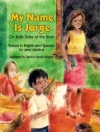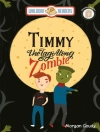Developing and supporting literacy is an absolute priority for all early years settings and primary schools, and something of a national concern. By presenting extensive research evidence, Rachael Levy shows how some of our tried and tested approaches to teaching reading may be counter-productive, and are causing some young children to lose confidence in their abilities as readers. Through challenging accepted definitions and perspectives on reading, this book encourages the reader to reflect critically on the current reading curriculum, and to consider ways in which their own practice can be developed to match the changing literacy landscape of the 21st century.
Placing the emphasis on the voices of the children themselves, the author looks at:
– what it feels like to be a reader in the digital age
– children′s perceptions of reading
– home and school reading
– reading in multidimensional forms
– the future teaching of reading
Essential reading for all trainee and practising teachers, this critical examination of a vital topic will support all those who are interested in the way we can help future generations to become literate. This book will encourage researchers and practitioners alike to redefine their own views of literacy, and situate ′reading literacy′ within the digital world in which young children now live.
İçerik tablosu
Introduction
Structure of the book
Overview of the book
Becoming a Reader in a Digital Age
Definitions of Reading
The Cognitive-Psychological Perspective
The Psycho-Linguistic Perspective
The Sociopolitical Perspective
The Sociocultural Perspective
The Study
Ethical Considerations
The Research Methods: Designing the Tools
The Role of the Researcher
Data Collection
Teacher and Parent Interviews
Developing the Case Studies
Summary
Children′s Perceptions of Reading: Defining ′Reading′ in the Nursery
The Nursery Cohort
Perceptions of Being ′a Reader′ in Nursery
Perceptions of Being a ′Non-Reader′ in Nursery
David′s Story: Integrated Perceptions of Reading
Summary
Children′s Perceptions of Reading: Defining ′Reading′ in Reception
The Reception Cohort
Perceptions of Being ′a Reader′ in Reception
Perceptions of Being a ′Non-Reader′ in Reception
Reading Words, Reading Pictures, Reading Whole Texts
David′s Story: Schooled Reading – Devoid of Meaning
Summary
Perceived Uses and Affordances of Book Texts
The Affordance and Uses of Books
Reading Scheme Texts: Proficiency Grading and Becoming ′a Reader′
Reading Schemes: Discouraging Reading
Summary
Reading in Multidimensional Forms
Digital Literacy
Using Computers at Home and at School
Reading Computer Texts
Responding to Print on Screen
Reading Print on Paper and Screen
Reading Print in Multidimensional Forms
Summary
What Reading Means at Home and at School
Introduction
Developing Perceptions of Reading During the Nursery Year
Moving into Reception: Changes in the ′Third Space′
Parents: Confidence and Contention in the ′Third Space′
Summary
From Research to Practice
Perceptions of Reading
Role of Play
The Teacher-Pupil Relationship
Print-Reading and the Use of Reading Scheme Texts
Digital Texts and New Technologies
Summary
Conclusion
A Foundation Curriculum: Promoting Confidence in Reading
Assessment
Future Research
Conclusion
Yazar hakkında
Rachael Levy worked as a primary school teacher in both London and Cambridge before undertaking her doctoral studies at the University of Cambridge. She is Lecturer in Early Years Education, at the University of Sheffield.












